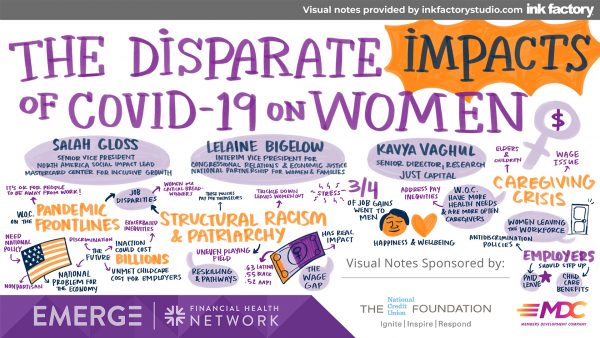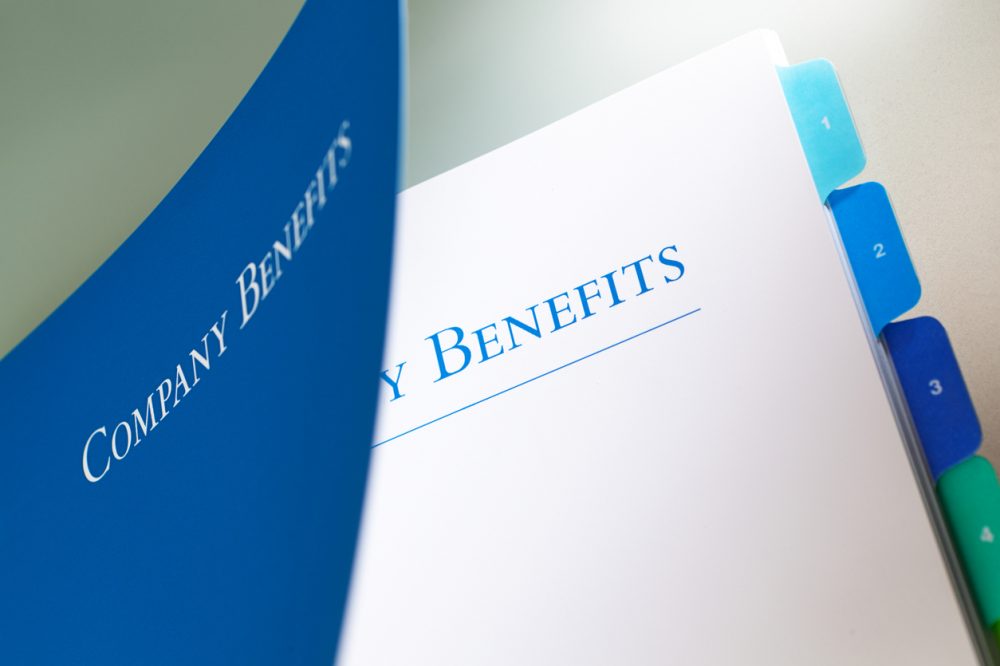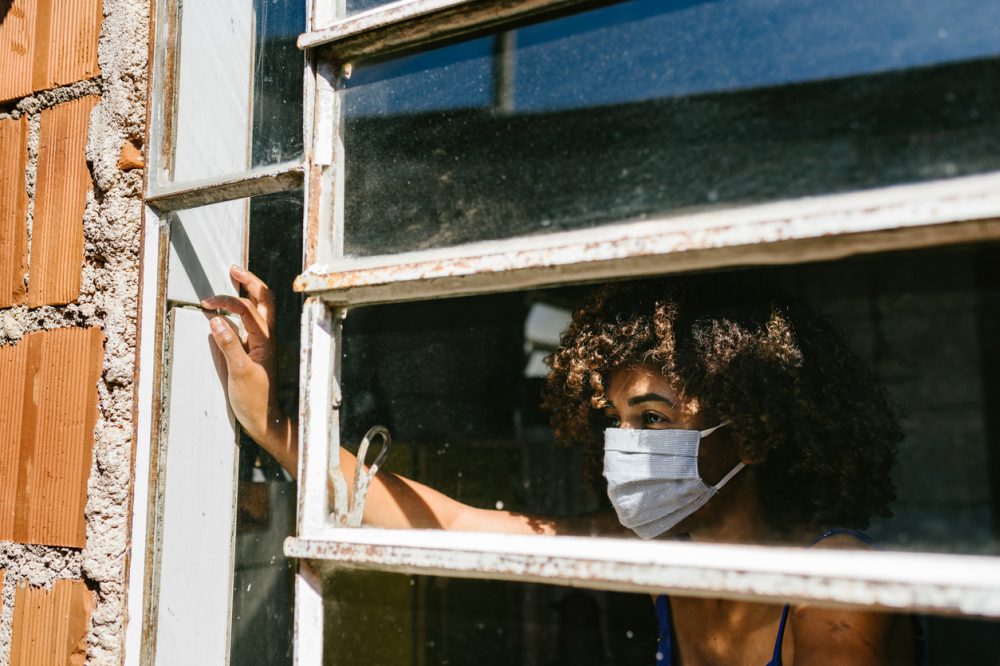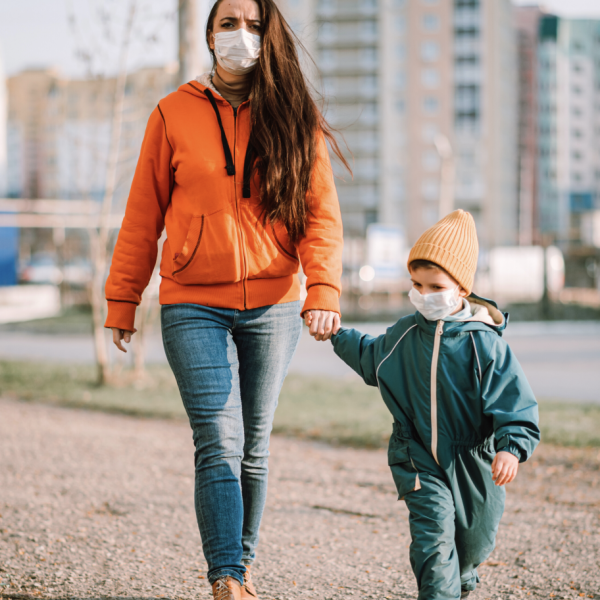To Address the Financial Health Gender Gap, Let’s Fix the Care Economy
New survey data finds lack of affordable, reliable childcare holds women back from working.
Setting a National Financial Inclusion Agenda
Building a truly inclusive financial system that helps people achieve short- and long-term financial stability will require a large-scale coordination of partners to bring about systemic change.
The Financial Health Network Announces Child Tax Credit Research
Challenges continue to impede the distribution of Child Tax Credit payments, especially for those who could benefit from them the most. The Financial Health Network will undertake research, supported by VISA, to determine how long CTC recipients might have waited to receive their payment, how much they might have spent in fees to access their payment, and how they ultimately used their payment.
Emergency Savings, Combined with Support Networks, Reduced Hardships During the Pandemic
This research was produced by the Financial Health Network in collaboration with BlackRock’s Emergency Savings Initiative. ESI is a cross-sector program with a mission to help people living on low to moderate incomes gain access to and increase usage of proven savings strategies and tools – ultimately helping them establish an important safety net.
Queer Financial Health: Checking the Pulse During the Pandemic
Our findings showed that LGBTQ+ people in America were less financially healthy, more stressed about their finances, and more likely to have experienced food, housing, and healthcare insecurity when compared to their non-LGBTQ+ peers.
On the Front Lines: How LMI Workers Coped During the COVID-19 Pandemic
Key Finding: Low- to moderate-income (LMI) frontline workers are less likely to be Financially Healthy than non-frontline LMI workers.
Why Nonprime and Prime Customers Need Flexibility Post-Pandemic
As a company focused on serving those consumers who may be shut out of traditional borrowing opportunities, Elevate understands that access to safe, affordable credit is as important as ever in enabling Americans to achieve financial security. Presented by Elevate
The Disparate Impacts of COVID-19 on Women
In this session, a panel of experts will discuss how the cascading economic consequences of the pandemic are reversing years of progress in workplace equity, and may have long-term implications for women’s financial lives for years to come.
New Financial Health Pulse Data Shows Millions of Americans Still Financially Struggling Amid Ongoing Pandemic
Food insecurity and fear of eviction pervasive among those hardest hit financially by pandemic with many borrowing money or cutting back on healthcare visits and medication
One Year into the Pandemic, Millions of Americans Still Struggling
Since the last Pulse survey in August 2020, more people are struggling to afford healthcare, which may lead to long-term health consequences beyond those created directly by COVID-19.
Dodging the Overdraft Bullet (So Far)
The economic shutdown and mandatory lockdowns forced many people to limit discretionary spending on retail, food, and entertainment, while stimulus checks and increased unemployment benefits improved financial health in the short term. This aided in a slow down of overdraft.
New Financial Health Network Report Finds Many Employers Taking Action to Improve Employee Financial Health Benefits Following the COVID-19 Pandemic
Chicago, IL, Nov. 12, 2020 (GLOBE NEWSWIRE) — The Financial Health Network, the nation’s authority on financial health, today released the “Know Better, Do Better: Building an Effective Financial Health Benefits Strategy” report in partnership with Morgan Stanley at Work, showing that close to 90% (86%) say they are aware of their employees’ financial health […]
The Road to Relief: Economic Recovery in Financially Vulnerable Communities
While the COVID-19 pandemic has heightened awareness of the financial hardships millions of Americans now face, the economic impact has been disproportionately felt by some communities more than others. Discover innovative solutions nonprofits are developing and deploying to support the financial recovery of immigrants, people with disabilities, and other vulnerable populations during this time of crisis and beyond.
Partnering to Address Basic Needs During COVID-19
Get inspired as SpringFour’s Co-Founder and CEO shares personal accounts from millions of referrals made since the pandemic, as well as insights into the value of partnerships in financial recovery.
What Gets Measured Gets Managed: Making Employee Financial Health Personal
There is no shortage of macro-level data showing that employees across the country, and in every industry, are struggling financially. As organizations think about assessing and improving the financial health of their workforces, here are some best practices to keep in mind.
Mind the Gap: Addressing Racial Economic Inequities Brought to Light by COVID-19
Learn how three nonprofits are working to address these issues by educating, activating, and empowering the next generation of Black leaders to achieve financial health and build wealth. This event is postponed until further notice. Thank you.
Risky Business: Pandemic Underscores How Strong Personal Financial Health Can Build Small Business Resilience
It’s critical that small businesses — especially those in underserved communities — get support from government and philanthropies to rebuild, and that owners also receive personal financial health support so they can build resilience over time and weather future financial shocks.
Why Undocumented Workers Deserve to Be Included in the Social Safety Net
Lack of access to the social safety net has consistently hindered pathways to financial health for undocumented immigrants. Expanding eligibility for benefits to undocumented immigrants, during the pandemic and beyond, would increase financial stability for their families and most likely bolster the economy as a whole.
Millions of American Families at Risk of Missing Out on Economic Relief. Again.
According to the eligibility rules of the CARES Act and the newly proposed “HEALS Act,” individuals are required to have a valid Social Security number in order to be eligible for an Economic Impact Payment.
The Case for Stimulus: New Pulse Data Show Stimulus Payments Provided Valuable Lifeline to Unemployed Workers
By Thea Garon, Senior Director, Necati Celik, Associate and Andrew Dunn, Manager, Financial Health Network Since mid-March, the United States has lost more than 21 million jobs amid the COVID-19 pandemic. In order to help people get by, the Treasury Department began distributing recovery rebates, or “stimulus payments,” on April 11 as part of the…
Financial Wellness After COVID-19: Lessons from Newark and Beyond
Prudential’s Lata Reddy shares how the company’s work to foster financial wellness in its home city of Newark, New Jersey, and nationwide can be a blueprint for a new level of resilience.
Reflections on Emergency Savings: Before, During, and After a Crisis
In this session, we reflect on the immediate and long-term impact of the COVID-19 pandemic on Americans’ financial health and discuss potential solutions.
After the Pandemic: How COVID-19 Will Impact Health System Policies and Partnerships
How will COVID-19, both a public health and a financial health crisis, shape health system policies and partnerships in the future? Join Dr. Choucair for a candid conversation about how to transform healthcare and ensure health equity for all.
Pandemic Economics and the Path to Recovery
In this session, we take a closer look at how community-based institutions are working to provide support in new ways, and how this shapes the outlook for recovery from the COVID-19 pandemic.
The Workplace of the Future: Building on Lessons from the Pandemic
Our expert panel shares insights on the current impact to the workforce and how the pandemic could forever transform the way we work.
Beyond Messaging: Financial Health Is No Longer a Nice-To-Have
We’ve long known from research and practice about the business case for advancing financial health. The coronavirus escalated the already precarious state of financial health of Americans everywhere and Financial Health Network Members took notice.
The Financial Lives of Older Adults in the Era of COVID-19
By Jacquelyn Reineke, Manager and Heidi Johnson, Director, Financial Health Network There is no denying that the COVID-19 crisis has turned the world upside down. Everyone has had to deal with daily changes to their routines and come to terms with a new normal, but vulnerable populations — in particular, aging Americans — have faced the most devastating consequences…
How Insurance Must Evolve to Serve Customers in Crisis
By Sarah Parker, Senior Director, Financial Health Network In the midst of the economic crisis brought on by the COVID-19 pandemic, consumers are realizing that insurance is not a nice-to-have; it’s a must-have. Life insurance carriers report a marked increase in interest from new customers who want to purchase policies, as people recognize the importance…
New Pulse Data: Those Who Need COVID-19 Stimulus Most Are the Last to Get It
By David Silberman, Senior Advisor, Financial Health Network The COVID-19 pandemic has caused widespread economic dislocation. Tens of millions of Americans have lost their jobs, at least temporarily, and millions more have seen their hours drastically cut. Those job and wage losses have fallen disproportionately on low-wage workers, especially blacks and Latinos, who are concentrated…
Measuring Financial Health in the Middle of a Pandemic
To measure the financial health of customers amid the economic devastation of COVID-19, organizations can leverage their own existing data and evaluate the rate of change in these metrics over time.
Income, Age, Race, and Gender Are Key Factors as New Data Shows 1 in 3 Americans Earning Less During COVID-19
In this new data from the 2020 U.S. Financial Health Pulse, a nationally representative online survey fielded from April 20 to May 7, learn how vulnerable groups are struggling in the wake of the pandemic.






























